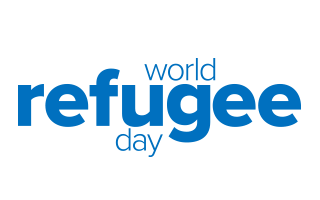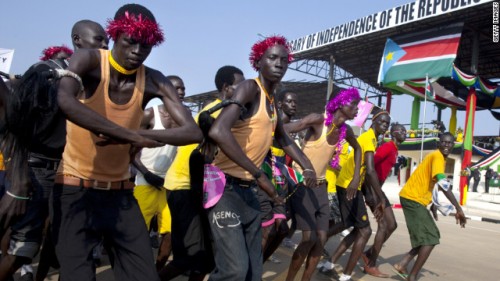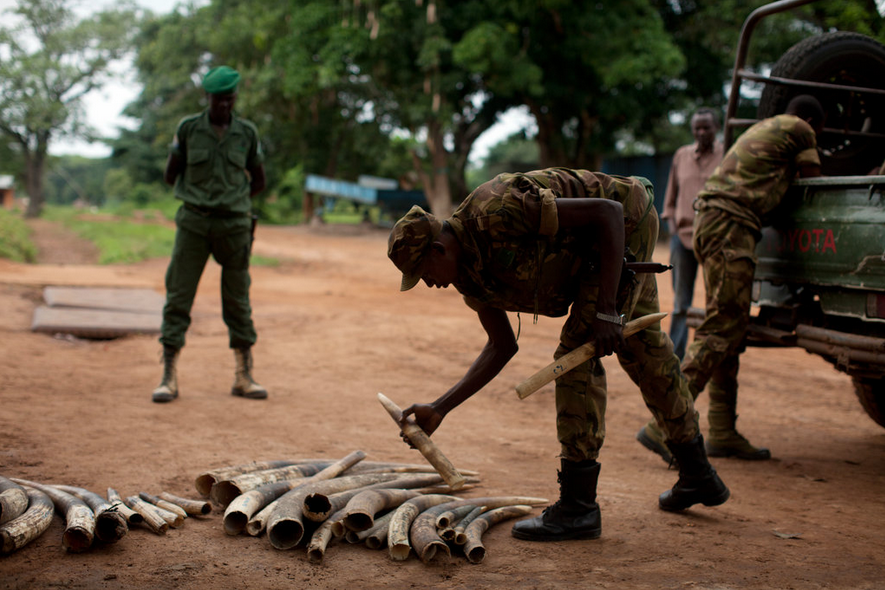You may not have realized when you woke up this morning that today is not your typical Wednesday. In fact, today is the 18th annual World Refugee Day. While that may not give you an excuse to indulge your sugar addiction, like on National Donut day, or require you to plan a Star Wars movie marathon, like on May the Fourth, World Refugee Day is a perfect reminder to find your own ways to support to the 65.3 million displaced people in the world. Today, we want to help you celebrate by offering some information.

The first thing you need to know is that there are more refugees in the world right now than any other time in history. On average, 28,300 people flee their homes every day for safety reasons, and 51% of refugees are under the age of 18. Displacement is a global problem. While the western world is familiar with refugees coming into the United States and Europe, we sometimes forget the 86% who are hosted by developing countries. Uganda alone supports 950,000 refugees, including those affected by violence and instability in the countries we predominantly work in, South Sudan, the Democratic Republic of Congo (DRC) and the Central African Republic (CAR). In order to change these statistics, and help reduce the number of refugees around the world, we have to understand why people leave their homes and support communities facing crises. Read on to learn more about what the communities we work with face every day.

Dancers celebrate the Independence of South Sudan in 2011
In South Sudan:
South Sudan gained independence in 2011, making it the world’s youngest country. This brought an official, brief end to the on and off war that had plagued the region for decades. Peace was short lived however, and in 2013 a civil war broke out between President Salva Kiir and his former vice president Riek Machar. Both government and rebel groups have reportedly committed war crimes against civilians—looting, raping, and killing throughout the region—leading to the displacement of 2 million people within South Sudan and 2 million more who have fled across borders (mostly to Uganda). Some see hope for renewed peace, as Kiir and Machar meet in Ethiopia today for the first face-to-face peace talk since 2016, and civil society and religious leaders across South Sudan are doing some incredible work in their communities to prevent violence, and help make South Sudanese families safer.
In the Central African Republic (CAR)
In the last year, violence in CAR has risen dramatically, mostly fueled by intercommunal conflict. Most news sources will boil conflict in CAR down to religious fighting between largely Christian anti-Balaka groups and predominantly Muslim ex-Seleka groups. While it’s not exactly that simple, most violence in CAR comes at the hands of groups that were once associated with Seleka, a group of mainly Muslim fighters that overthrew the CAR government in 2013 or anti-Balaka groups, which formed in response to Seleka’s violence against local communities. These rebel groups and Joseph Kony’s Lord’s Resistance Army (LRA) take advantage of a weak government and longstanding intercommunal tensions to pillage and commit atrocities against civilians, particularly through sexual assault. One million people have been displaced since June 2016 as a result, over half of whom are refugees, living outside of CAR. Efforts for peace justice are underway, however. Earlier this month, a new Special Criminal Court in CAR began prosecuting war crimes and our Invisible Children team are working with local communities to peacefully address and prevent conflict.
In the Democratic Republic of the Congo (DRC)
In December of 2016 DRC’s president, Joseph Kabila, reached the end of his second and mandated final term in office. He refused to step down however, and postponed elections, claiming that the country’s voting infrastructure was too weak for fair elections. In the two years since, thousands of citizens have protested and called for Kabila to step down. To quell the protests, the government has often responded with force, causing many to assert that human rights in DRC have been systematically violated. Throughout this time of instability, over 100 armed groups, including the LRA, have exploited many of the country’s rich natural resources including poaching in Garamba National Park and looting surrounding villages to fuel their violent agendas. This combination of crises has led to the displacement of 4.5 million people inside and outside of the DRC. Recently an Ebola outbreak has further threatened Congolese communities. Despite what they face, communities in DRC are developing incredible and innovative solutions to preventing violence. Many Invisible Children programs, like our Early Warning Radio Network, were originally developed by and alongside local leaders. Today, we’re even expanding the network and training communities to use the network to help prevent and report poaching in order to help keep their families and the wildlife they live among safe.

Tusks taken from poachers are collected by conservation experts. (Tyler Hicks, nytimes)
In each of these countries, the LRA and other armed groups have taken advantage of the violence and chaos to exploit local communities and the natural resources they rely upon. Here at Invisible Children we believe that while becoming aware of these crises is a good start towards helping refugees and others impacted by violence and exploitation, the only way to permanently change the situation is to combat these problems at their roots.
That is why we work hand-in-hand with local community leaders to create programs like the Early Warning Radio Network, which allows small communities who would otherwise be completely isolated to communicate with each other and share information about armed group activity. This gives communities access to information that can help them reduce the impact of armed group violence. Not only that, we are able to collect information shared through the network and analyze it for trends via our LRA Crisis Tracker. With this information, security forces can more effectively prevent armed group violence in the first place. All in all, these programs help make communities safer and prevent more families from becoming displaced by violence.
In places like CAR, where violent groups exploit deep-rooted tensions within communities, it’s also incredibly important to equip local leaders with tools to resist and resolve conflict peacefully. That’s why we help create and train Local Peace Committees in communities throughout CAR and DRC. These committees are trained how to not only mitigate threats from armed groups when they are attacked, but also how to overcome trauma they have experienced, protect their natural surroundings, and to peacefully work through conflict. Peace Committees have proven an effective mechanism for preventing violence and helping communities–including displaced people–to become more resilient.
At Invisible Children, we care about our refugee friends, and we know you do too. Celebrate World Refugee Day by joining us in uniting #WithRefugees with a gift to support programs that make central African communities and families safer in their own homes. Together, we can change the lives of millions.
STAND #WITHREFUGEES. GIVE TO SUPPORT INVISIBLE CHILDREN PROGRAMS TODAY.
Think people should hear about this?